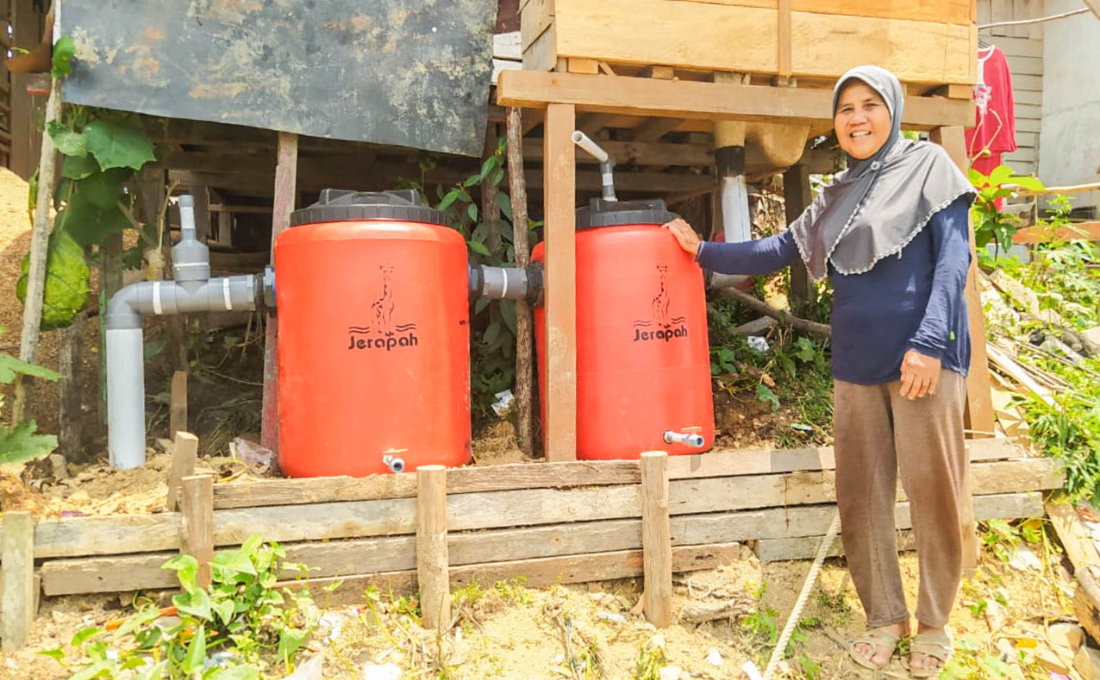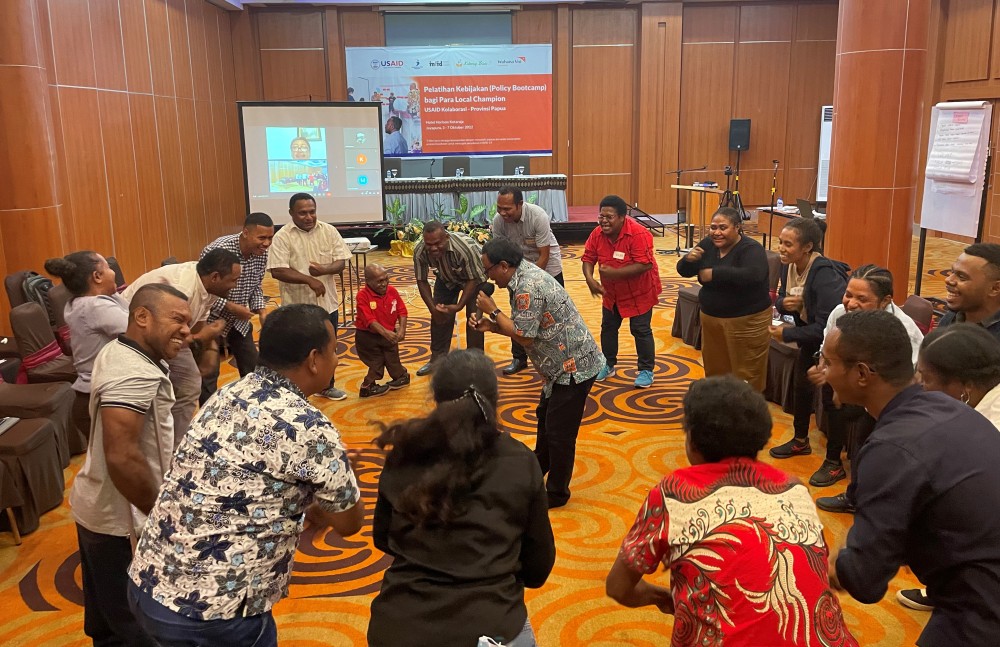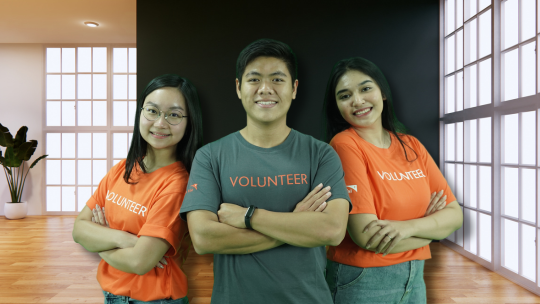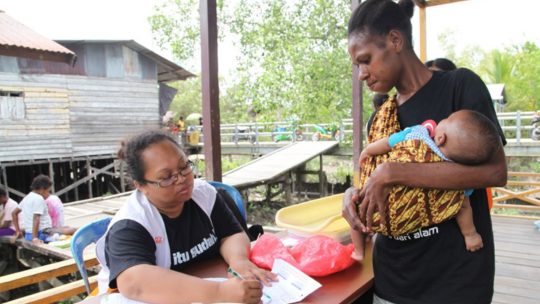I Have a Toilet because Others Care

Accelerating ODF (Open Defecation Free) requires cooperation from all elements in the community. In addition, the success of the community based sanitation program requires good social cohesion in the community. Mutual cooperation (gotong royong) must be carried out regularly. This was the case when WVI implemented the Gentong Mas Santun Technology program in one of the villages in Sekadau Regency, West Kalimantan.
Sekadau is ensuring universal access to sanitation for its community. This is evident in the policy of Regent Regulation No. 51/2017 on the Community-Based Total Sanitation Movement. As a form of implementation of this policy, the Government of Sekadau Hilir Sub-district then designated one of the villages in the WVI assisted area as one of the ODF target villages in 2023.
This village is located on the coast of the Kapuas River. There are still many people who do not have a clean and healthy lifestyle by defecating in the river. This was also experienced by Ibu Samsiah. "Before there were toilets, it was difficult to defecate. I had to go down to the river and sometimes it was hard to see. Moreover, I am a widow and live alone in this house," she said.
New hope emerged for Ibu Samsiah when she became one of the beneficiaries of the Gentong Mas Santun (Community Assistance Movement for Complete Sanitation) Technology among 28 other households. "I believe that I can be chosen as a recipient of this innovative assistance not only because my house is on the riverbank, but also because the government cares about me after seeing my economic condition and status," said the woman who sells goods around the village.
Wahana Visi Indonesia, through philanthropic funding, implemented this program to accelerate the implementation of the sanitation program in the village. The Gentong Mas Santun is an alternative healthy toilet model for houses on stilts by the river, on swamps, and in tidal areas, which can also be applied to houses on land. With this innovation, communities living by rivers and swamps will be helped to solve sanitation problems because this toilet model safeguards water and the surrounding environment from fecal contamination that is wasted carelessly. WVI specifically conducted training on the definition, benefits, and installation of the Gentong Mas Santun to beneficiaries including Ibu Samsiah as well as the village government to ensure sustainability.
Based on mutual agreement, beneficiaries are responsible for building the upper toilet in the house. A new challenge arose for Ibu Samsiah. She had no one else in her house to help. "It was a challenge for me because I live alone. But my family and neighbors helped me build the toilet and install the toilet. They worked together in my house. I can have a toilet because WVI and other people around me care about my life," said Ibu Samsiah.
Now Ibu Samsiah has a toilet that is innovative and also the result of gotong royong. This toilet comes from mutual concern among the village community. "Now it's good. I can bathe and defecate in my own toilet. No need to go down to the river. I even installed a water pump to keep my toilet filled with water. This innovative technology is very helpful for me, especially in my old age. I will take care of the existing facilities so that they are maintained," she said happily.
Author: Bastian Rengga (Area Program Manager in Sekadau, West Kalimantan)
Editor: Mariana Kurniawati (Communication Executive)



